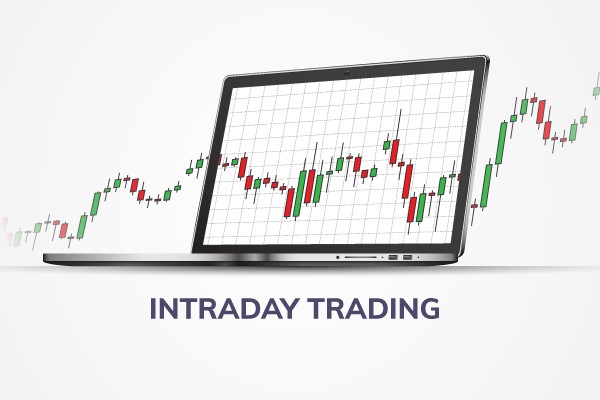Intraday trading is a popular strategy among Indian stock market traders who aim to profit from short-term price movements within a single trading day. The Indian stock exchanges, including the National Stock Exchange (NSE) and the Bombay Stock Exchange (BSE), offer opportunities for traders to engage in quick buying and selling of shares to capitalize on market volatility. The key to successful intraday trading is understanding the correct timing to enter and exit trades, aligning with the trading hours of these exchanges.
Understanding Intraday Trading
Intraday trading involves buying and selling financial instruments within the same trading day, aiming to close all positions before the market closes. Traders focus on liquid instruments like stocks, indices, and derivatives to ensure quick transaction execution. The essence of intraday trading is capturing intra-day price fluctuations for generating profits, rather than holding onto investments for days, weeks, or months. Understanding the intraday trading time is crucial, as traders must complete all transactions within the designated market hours to avoid overnight risks.
Trading Hours on Indian Exchanges
The Indian stock exchanges have specific trading hours that intraday traders must familiarize themselves with in order to maximize their strategies effectively. The primary trading session runs from 9:15 AM to 3:30 PM, from Monday to Friday. This time frame provides traders with a 6-hour and 15-minute window to engage in trading activities.
Here's a breakdown of the main trading segments:
1. Pre-Opening Session:
- Timing: 9:00 AM - 9:15 AM
- Purpose: Allows participants to place market orders before the actual market opens.
- The pre-opening session helps in stabilizing volatility, determining equilibrium prices, and setting a benchmark for the opening price.
2. Normal Trading Session:
- Timing: 9:15 AM - 3:30 PM
- Purpose: This is the primary session where most of the trading activity occurs, including market orders, and limit orders which are executed based on real-time market data.
3. Post-Closing Session:
- Timing: 3:30 PM - 3:40 PM
- Purpose: Allows traders to place trade orders at the day's closing price.
- Orders placed during this session are executed at the closing price established during the normal trading hours.
Calculating Market Hours for Intraday Trading
Considering the typical Indian share market trading timings, intraday traders have approximately 6 hours and 15 minutes to execute their strategies effectively during the normal trading session. This limited period emphasizes the need for swift decision-making and efficient strategy implementation.
Evaluating the Correct Trading Time
There are several theories and popular opinions amongst experienced traders regarding the most effective timing for intraday trading. Here's a detailed look at the different time segments of a trading day:
1. Market Opening Hour (9:15 AM - 10:30 AM):
- The first hour of trading is characterized by heightened volatility due to the influx of news and overnight developments.
- This volatility presents opportunities for traders to capture quick price movements, but it also involves higher risk.
- Traders employing strategies such as gap trading often prefer this time frame.
2. Mid-Day Trading (11:30 AM - 1:30 PM):
- This period typically witnesses relatively stable price movements since the market has absorbed most of the news and data releases.
- Strategies that focus on technical patterns or indicators can be deployed effectively during mid-day trading.
3. Last Hour of Trading (2:30 PM - 3:30 PM):
- Towards the end of the trading session, there's usually a surge in activity as traders exit their positions and reassess strategies.
- Experienced traders may capitalize on predictable movements caused by profit booking and adjustments.
Pros and Cons of Following Intraday Trading Hours
Understanding market dynamics during these trading hours offers both advantages and challenges:
Pros:
- Provides structured opportunities to capitalize on daily price movements.
- It allows traders to capitalize on market reactions to news and events.
- Ensures all positions are closed within the same day, avoiding overnight risk.
Cons:
- Requires constant monitoring and quick decision-making to manage trades effectively.
- Heightened volatility can lead to significant losses if trades are not managed prudently.
- Limited market hours necessitate precise timing and execution.
Factors Influencing Market Hours
Market volatility, liquidity, and stock-specific factors, including earnings announcements, economic data releases, and global market influences, significantly affect intraday trading dynamics. Traders need to be informed and agile to navigate these fluctuations for successful short-term trading.
Disclaimer
Intraday trading has captured significant attention for being a dynamic investment approach within Indian exchanges. Successful traders know that timing is crucial, and understanding the dynamics of various trading hours can facilitate better decision-making. Crafting a well-rounded strategy involves staying aware of how each time segment interacts with market trends and the event-driven dynamics unique to the Indian stock market. Effective engagement in this domain relies on knowledge, preparation, and adaptability.





Comments